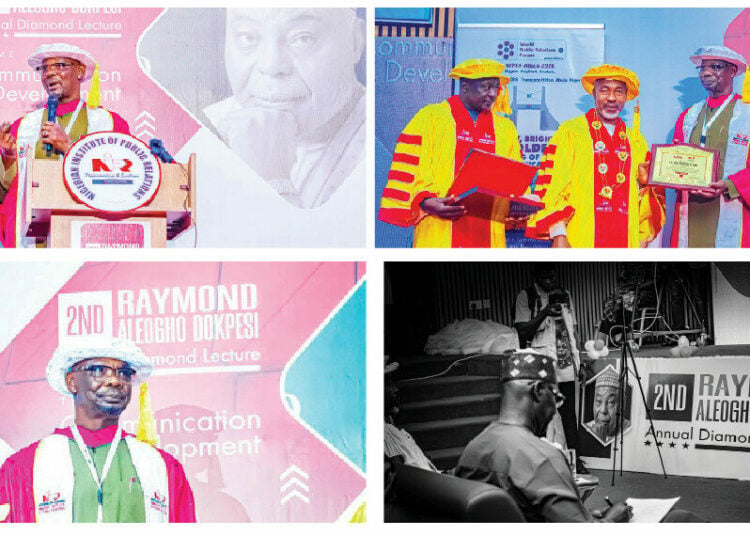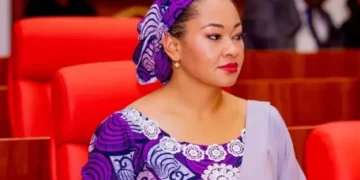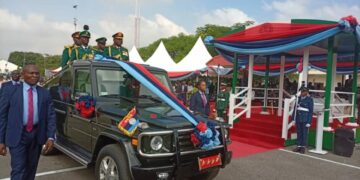At the Nigerian Institute of Public Relations (NIPR)’s event which was held in Abuja recently, Nasarawa State Governor, Abdullahi Sule was again honoured with the institute’s fellowship, its highest professional honour, in recognition of his exceptional leadership, transparency, and commitment to effective public communication.
The event also included a lecture with the theme, “Communication and Development” put together by DAAR Communications, NIPR, University of Public Relations and Leadership and World Public Relations Forum in honour of late Chief Raymond Dokpesi.
It was the second time the institute will be honouring Governor Sule, having emerged winner of its Diamond Prize for Excellence in Innovative Leadership a year earlier.
Sule, who gave the keynote address at this year’s event which was held on October 25, praised the late media mogul for his courage in establishing the country’s first private radio and television stations during the military era.
He said Chief Dokpesi, through the medium, challenged military dictatorship at a time when sycophancy was the order of the day.
“Today, we are here to celebrate an icon of the media, a man who the history books refer to as being the first to establish a private establishment called independent radio station and later on the AIT.
“At that time, almost everything in Nigeria was owned by the government. And he established that and during a difficult period of the military, and he was not afraid to establish that and talk about and against the government when it is necessary.
“Dokpesi was never a sycophant and to continue to remember him, and sustain his strategies to enhance sustainability is remarkable,” he stated.
He said even in democratic governance today, sycophancy has been the veritable meal ticket, stressing that only a few have the courage to speak to power like Dokpesi did during the military era.
The governor noted that he has witnessed first-hand how some of the persons who hailed late President Muhammadu Buhari while in office, turned around to speak ill of him after he exited the scene.
“I have seen what sycophancy can do. I have seen people actually sit in the presence of President (Muhammadu) Buhari to tell him, ‘Oh, you are the best ever. Nobody can do this better.’
“But the minute Buhari left the government; they started saying, ‘Oh, he was one of the worst presidents we had ever seen.’ These are the same people but different moments. That is what sycophancy is all about,” he said.
He commended the organisers for ensuring that Dokpesi’s legacies lived on even in death.
“Dokpesi was never a sycophant and to continue to remember him, and sustain his strategies to enhance sustainability is remarkable.
“Some organisations died with the death of the founder, but here is Dokpesi’ legacies waxing stronger, even after his death. I congratulate the DAAR family for this.
“As we reflect about the life and times of Chief Raymond Dokpsi, we must ask ourselves this question; what does it take to be the first or number one? We define a leader as someone who knows the way, shows the way and leads the way.
“And as being the first to dream and have the courage to own and operate his private media in Nigeria, Dokpesi has earned our respect for being a leader, not just in broadcasting in Africa but a leader in courage and doing the right thing,” he said.
The governor thanked NIPR’s team led by Dr. Ike Neliaku and Prof. Emmanuel Dandaura for the vision and courage of muting the idea of establishing the first University of Public Relations and Leadership in Gudi, Akwanga Local government area of Nasarawa State.
He also praised the duo and other leaders of the institute for steering it on the path of development and growth.
In his remarks, NIPR President, Dr. Ike Neliaku, appreciated Governor Sule donating a parcel of land for the establishment of the first global PR University in the state.
He said the new institution will serve as a “knowledge hub” for grooming ethical communicators, transformational leaders, and development-oriented thinkers, aimed at bridging the gap between policy and practice in Nigeria’s public relations landscape.





